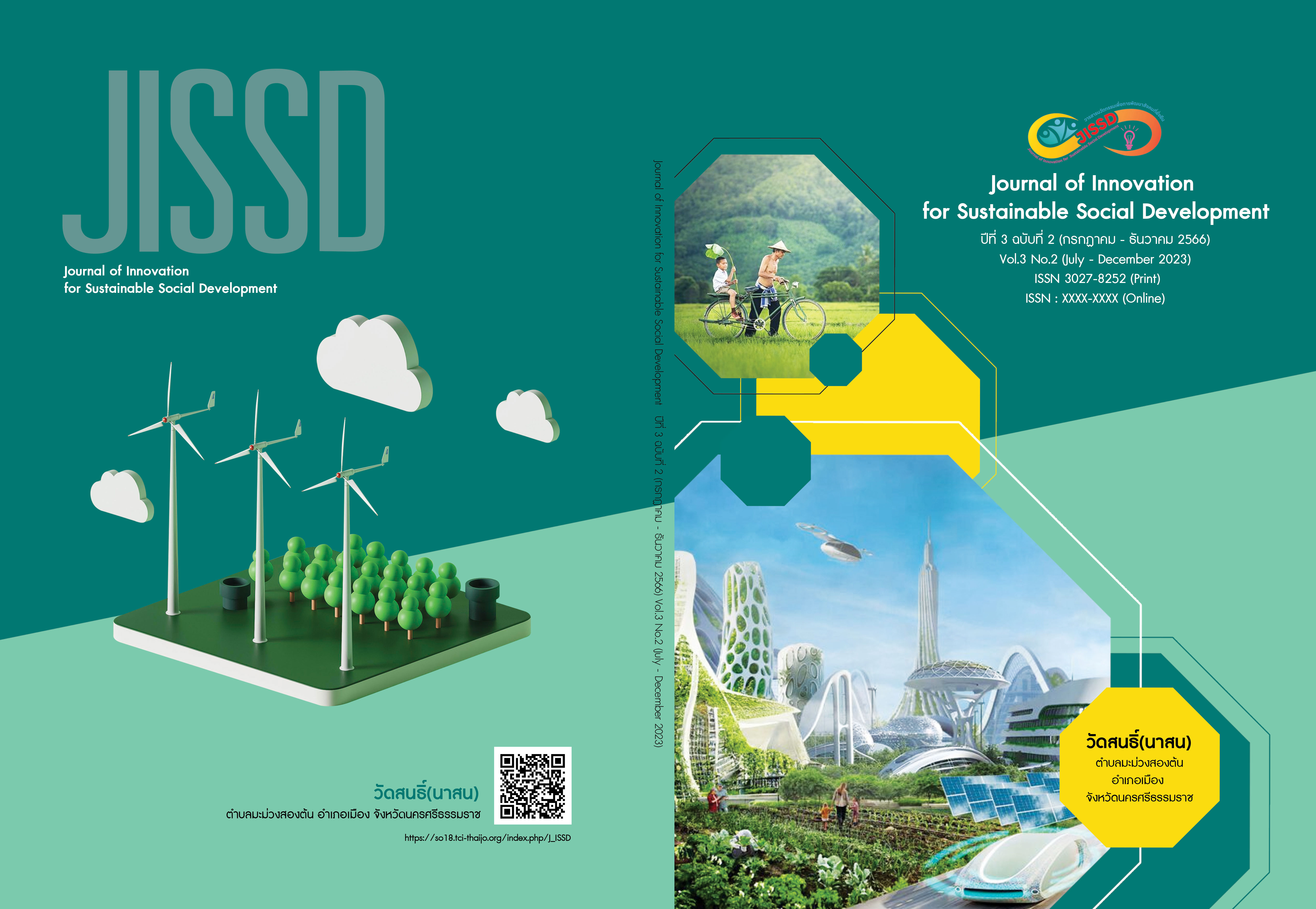A STUDY OF OPINIONS ON THE INNOVATIVE MODEL TO PROMOTE LEARNING OF THE HOME LOAN DEEP DIVE COURSE FOR REAL ESTATE BUSINESS OPERATORS
Keywords:
Innovation Form, Innovation Promote Learning, Learning Management, Real Estate Business OperatorsAbstract
The purposes of this article were to 1) study opinion level on the innovative form to promote learning in the Home Loan Deep Dive course 2) compare the respondents' opinions on the Home Loan Deep Dive course classified by personal factors. It was quantitative research. The sample group was 500 samples of the general public using a multi-step sampling method, including stratified random sampling. purposive sampling and simple randomization, the research tool was a questionnaire. Data is collected through an online system. Data is analyzed using descriptive statistical methods, including frequency, percentage, mean, and standard deviation. Hypotheses were tested with a t-test. One-way analysis of variance the analysis of other suggestions was carried out with a descriptive content analysis. The results of the study found that 1) The sample group thought the Home Loan Deep Dive-Intensive Loan course was a specially created course that had not been prepared anywhere before by the highest-level = 4.63, and they thought that the design of teaching media was novel and unique at the highest level = 4.71. In addition, they thought that collecting relevant content from various financial institutions and categorizing them for use in teaching had never been done before in any curriculum at the highest level = 4.69. 2) The sample group had differing personal factors, including gender, age, education, region of residence, real estate experience, and income. Despite these differences, there were no differing opinions on the Home Loan Deep Dive course.
References
กำชัย ทบบัณฑิต และคณะ. (2560). การพัฒนานวัตกรรมการเรียนรู้ตามแนวคิดการเรียนรู้โดยใช้สมองเป็นฐาน เพื่อเสริมสร้างทักษะการอ่าน และการเขียนภาษาไทย ของนักเรียนระดับประถมศึกษา. ใน รายงานการวิจัย. มหาวิทยาลัยราชภัฏรำไพพรรณี.
ปณิตา ราชแพทยาคม. (2561). นวัตกรรมการจัดการความรู้ด้านการเงินสำหรับผู้ประกอบการร้านอาหารขนาดเล็กในประเทศไทย. ใน ดุษฎีนิพนธ์วิทยาศาสตรดุษฎีบัณฑิต สาขาวิชาธุรกิจเทคโนโลยีและการจัดการนวัตกรรม. จุฬาลงกรณ์มหาวิทยาลัย.
สิทธิพล วิบูลย์ธนากุล. (2564). วิกฤติตลาดอสังหาริมทรัพย์ ในวันที่ปัจจัยลบรุมเร้า. เรียกใช้เมื่อ 20 กุมภาพันธ์ 2565 จาก https://www.bangkokbiznews.com/blogs/columnist/128234
อรรถเดช สรสุชาติ. (2563). สถิติประยุกต์ และระเบียบวิธีวิจัย. ขอนแก่น: กรีนเนส เวิร์ดไวด์ จำกัด.
Bloom, B. S. et al. (1956). Taxonomy of Educational Objectives. New York: David.
Clinic, f. (1996). Theories of mass communication. London: Longman.
Cronbach, L. J. (1990). Essentials of Psychological Test. (5th ed.). New York: Harper Collins.
Everett, M. (1983). Diffusion of Innovations. New York: Free Press.
Shiffman, D. (2007). Consumer Behavior. (9th ed.). Prantice - Hall: Upper Saddle River.
Yamane, T. (1973). Statistics: An Introductory Analysis. (3th ed.). New York: Harper and Row.
Downloads
Published
How to Cite
Issue
Section
License

This work is licensed under a Creative Commons Attribution-NonCommercial-NoDerivatives 4.0 International License.




